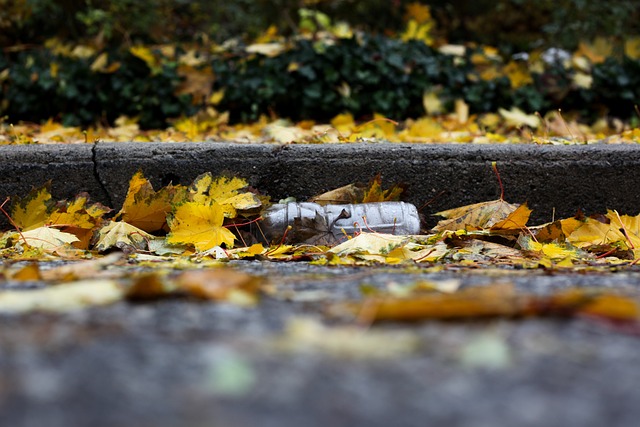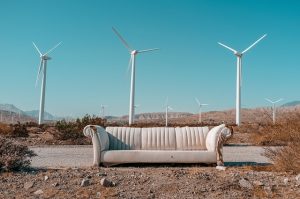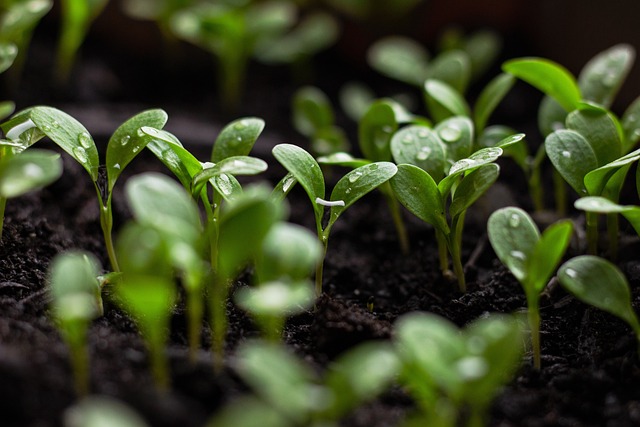
A new consortium called the Zero Emission Services B (ZES) has been launched by a group of companies, which includes Wärtsilä, ING Bank, Engie, and the Port of Rotterdam Authority. The main goal of this consortium is to develop zero-emission inland waterway shipping in the Netherlands. One of the key elements of this initiative is the development of a fully electric barge equipped with replaceable battery containers known as ZESPacks.
A new consortium called the Zero Emission Services B (ZES) has been launched by a group of companies, which includes Wärtsilä, ING Bank, Engie, and the Port of Rotterdam Authority. The main goal of this consortium is to develop zero-emission inland waterway shipping in the Netherlands. One of the key elements of this initiative is the development of a fully electric barge equipped with replaceable battery containers known as “ZESPacks”. These ZESPacks will enable the barge to travel a distance of 50-100 km (31-62 miles) before needing to swap out the containers for fully charged ones. This swapping process is similar to the concept of EV battery swapping, but on a much larger scale. Each ZESPack will have a capacity of roughly 2 MWh, while the barge typically requires 500-1,000 kW of power. As a result, there will be a need for 2-4 hours of work in between each battery swap.
The ZESPack capacity is expected to be guaranteed for 10 years. After this period, once the capacity is reduced by 20%, the container will be repurposed for energy storage. This concept helps to keep barge costs under control, compared to a long-range version, and allows for the use of renewable electricity. The ZESPack can also be utilized as energy storage for grid purposes when not actively in use.
However, in order to make this system work, a network of stations must be built along the route. There will also be associated costs for setting up this network. The plan includes setting up a network of open access charging points for exchanging depleted battery containers with ready-charged replacements, to minimize waiting times.
The consortium is considering using a hydrogen version of the ZESPack for various applications. They believe that the system is future-proof because it is not dependent on a specific energy provider. Initially, batteries will be used, but if hydrogen becomes a viable alternative in the future, containers equipped with hydrogen technology could be used to supply power. The first route selected for the project is the Zoeterwoude – Alpherium – Moerdijk corridor, and the first potential customer, HEINEKEN beer company, has already signed on. The ZESPack is designed for multiple applications, including temporary onshore use for stabilizing the local electricity grid or meeting short-term demand for electrical power.
Today, Zero Emission Services B.V. (ZES) was founded in Rotterdam on 2 June 2020. The company is introducing a new energy system to make inland shipping more sustainable. Following this, the system will be expanded to include the Amsterdam – Rotterdam – Antwerp corridor, with a connection to Nijmegen. The initial focus will be on converted and newly-built container carriers. The HEINEKEN beer company has already entered into an agreement with ZES to utilize the service for transporting beer from its brewery in Zoeterwoude to Moerdijk, making it the first end customer for the enterprise.
The Dutch Ministry of Infrastructure and Water Management supports the first step in the transition to emission-free inland shipping. This initiative is spearheaded by ZES, a company founded by ING bank, energy provider ENGIE, maritime technology company Wärtsilä, and the Port of Rotterdam Authority. They offer a range of products and services including interchangeable battery containers charged with renewable power, charging stations, technical support, and an innovative payment concept for ship owners. The goal is to create emission-free navigation infrastructure that is clean, climate-neutral, and competitive with fossil fuels for everyone to access.
The HEINEKEN beer company has partnered with ZES to provide emission-free beer transports from the brewery in Zoeterwoude to Moerdijk for the next ten years. This move demonstrates their commitment to sustainability and showcases their confidence in ZES’s capabilities. The Green Deal Zeevaart, Binnenvaart en Havens (Maritime, Inland Shipping and Ports) is an initiative that aims to make inland shipping more sustainable as part of the broader effort to reduce carbon dioxide emissions in the Dutch transport sector. Currently, the transport sector in the Netherlands accounts for 21% of all CO2 emissions, with inland navigation alone contributing 5% to this total. The push for more sustainable practices in the transport sector aligns with the goals set forth in the Paris Climate Agreement.
Minister of Infrastructure and Water Management, Cora van Nieuwenhuizen, emphasizes the Netherlands’ leading role in sustainable water transport. Inland shipping in the country has made a significant shift from diesel-powered vessels to fully electric barges. This transformation not only helps in achieving climate agreement goals but also reduces nitrogen oxide emissions. Inland waterways play a crucial role in transporting more than a third of all goods and 80% of bulk commodities. This mode of transport not only decreases truck traffic but also significantly lowers CO2 emissions. The introduction of emission-free ships further advances the progress towards a more sustainable transportation sector.
Willem Dedden, CEO of Zero Emission Services, has introduced a systemic change in inland navigation. He has made it possible for barges to sail emission-free by using replaceable battery containers called ‘ZESPacks’. These containers are charged with sustainably generated power. As part of this initiative, a network of open access charging points will be established for exchanging battery containers. At these points, depleted ZESPacks can be exchanged for full ones, allowing ships to quickly resume their journey with minimal waiting time. Additionally, the energy containers can serve multiple purposes, such as stabilizing the electricity grid or meeting temporary local electricity needs when used on shore. The system is designed to be future-proof as it is not reliant on a specific energy carrier.
An innovative ‘pay per use’-based financing model has been developed to make the transition to emission-free sailing easier for skippers. This model allows ZES to only charge the cost of consumed renewable energy and a battery container rental fee, ensuring that operating costs for skippers remain competitive. However, ships must be equipped with an electric propulsion line. The systemic change, involving a total cost of €20 million for the first phase, will start using batteries, with the possibility of switching to hydrogen technology-equipped containers in the future if hydrogen becomes cheaper.
ING bank, ENGIE, Wärtsilä, the Port of Rotterdam Authority, and the Dutch government provide financial support for the project. The government’s contribution includes grants from the Ministry of Infrastructure and Public Works and the Rijksdienst voor Ondernemend Nederland, with the aim of promoting sustainable transportation. HEINEKEN also offers support in the form of a long-term transport agreement and an initial contribution towards the development costs of the first ship operated by its carrier CCT, which will not charge any handling costs for loading and unloading.
From the initial development of the system, HEINEKEN has been actively involved as a forwarder, making a strong team effort towards ensuring the financial feasibility of this systemic transition. The company is now set to become the first end customer to sail utilizing this new system. The first ship will be transporting beer from the HEINEKEN brewery in Zoeterwoude to the port of Moerdijk via the Alpherium inland shipping terminal. HEINEKEN’s involvement in this project is driven by its commitment to clean, climate-neutral logistics and sustainably powered transport. The company has a goal of achieving a climate-neutral chain overall.
Zero Emission Services (ZES) has been established with the aim of making inland waterway shipping more sustainable. The concept involves using replaceable battery containers for fully electric propulsion. To achieve this goal, the first loading point will be established along the Zoeterwoude – Alpherium – Moerdijk corridor. Following this, the focus will shift towards setting up an Amsterdam-Rotterdam-Antwerp corridor and connecting to Nijmegen. In the initial phase, the main emphasis will be on converting and constructing inland container ships. The technology group Wärtsilä has also become a part of a consortium of key partners collaborating with Zero Emission Services B.V. Their innovative ‘pay-per-use’ financing model is aimed at keeping operational costs low.
ZES is an enterprise that aims to promote sustainability in inland waterway shipping. The other founders of ZES include ING Bank, energy and technical service provider Engie, and the Port of Rotterdam Authority. The Dutch Ministry of Infrastructure and Water Management is also in support of this concept.
In the Netherlands transport sector, inland navigation is responsible for 5 percent of carbon dioxide (CO2) emissions. By transitioning from diesel fuelled propulsion to fully electrically powered transport, a significant step can be taken towards achieving the goals of the Paris Climate Agreement.
The core of the concept lies in the use of replaceable battery containers, called ‘ZESPacks’. These containers will be charged with energy from renewable sources.
For exchanging depleted battery containers for ready-charged replacements, a network of open access charging points will be set up, aiming to keep waiting time to a minimum. The ZESPacks, designed for multiple applications, can be utilized for temporary onshore use, such as stabilizing the local electricity grid or meeting short-term demand for electrical power. According to Wärtsilä, this innovative concept aligns completely with their commitment to lessening the environmental impact of shipping.
Tamara de Gruyter, President of Marine Systems & Executive VP at Wärtsilä, expressed pride in the company’s expertise in maritime battery systems, shore power connections, and inland waterway applications as key reasons for joining the project. The system is designed to be future-proof by being independent of the energy provider. Initially, batteries will be used, but the system can easily transition to alternative technologies like hydrogen in the future using containers equipped with the necessary technology. In order to encourage barge operators to participate in the project, a ‘pay-per-use’ financing model has been developed.
The HEINEKEN beer company has entered into an agreement with ZES to utilise the service for transporting beer from its brewery in Zoeterwoude to Moerdijk, thus becoming the first end customer for the enterprise. ZES charges only for the cost of consumed renewable energy plus a rental fee for the battery container, ensuring that the skipper’s operating costs remain competitive. Vessels must be equipped with an electric propulsion line for the project. Initially, it will be employed along the Zoeterwoude – Alpherium – Moerdijk corridor, with plans to expand to the Amsterdam – Rotterdam – Antwerp corridor and make a connection to Nijmegen. The emphasis during the initial stage will be on converted and newly-built container carriers.
The newly launched Zero Emission Services B (ZES) consortium, consisting of companies such as Wärtsilä, ING Bank, Engie, and the Port of Rotterdam Authority, aims to develop zero-emission inland waterway shipping in the Netherlands. The initiative will involve the use of fully electric barges equipped with replaceable battery containers known as ZESPacks, allowing the vessels to travel 50-100 km before needing to swap containers. Initial routes for the project include the Zoeterwoude – Alpherium – Moerdijk corridor, with potential customers like HEINEKEN already on board



